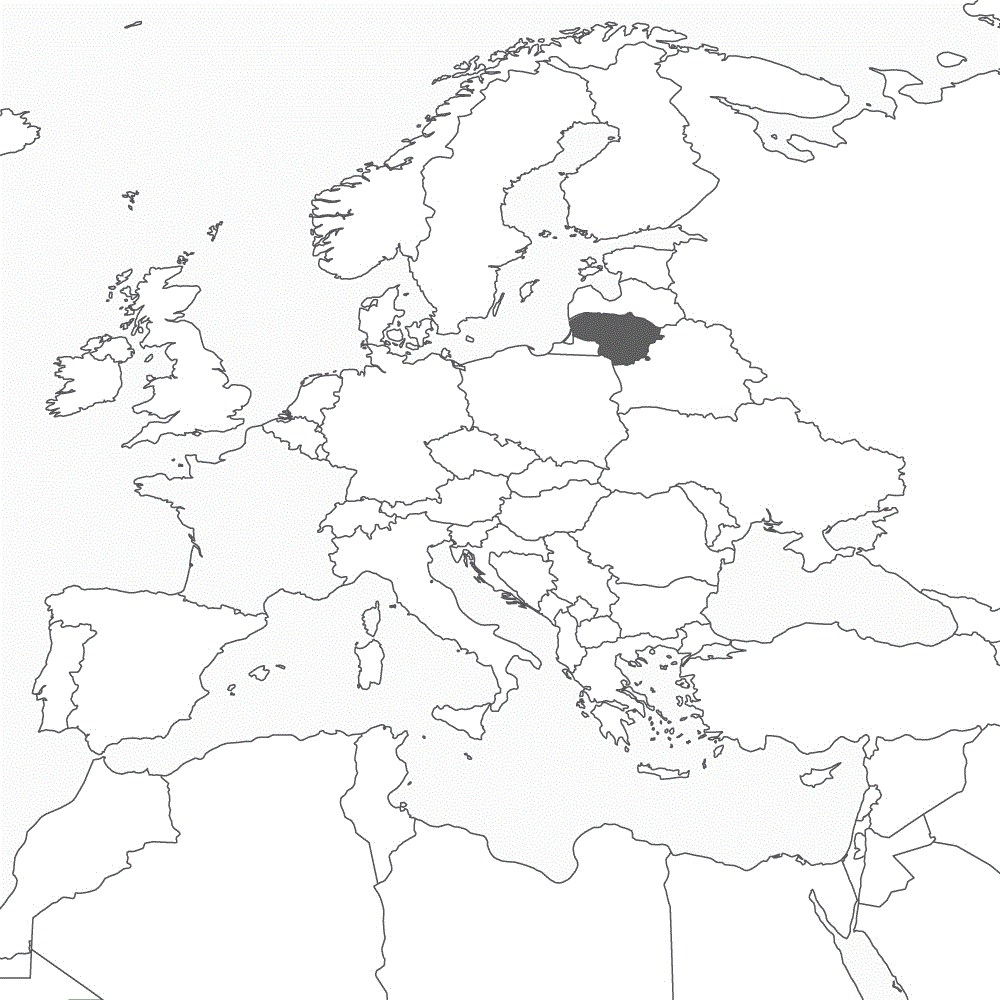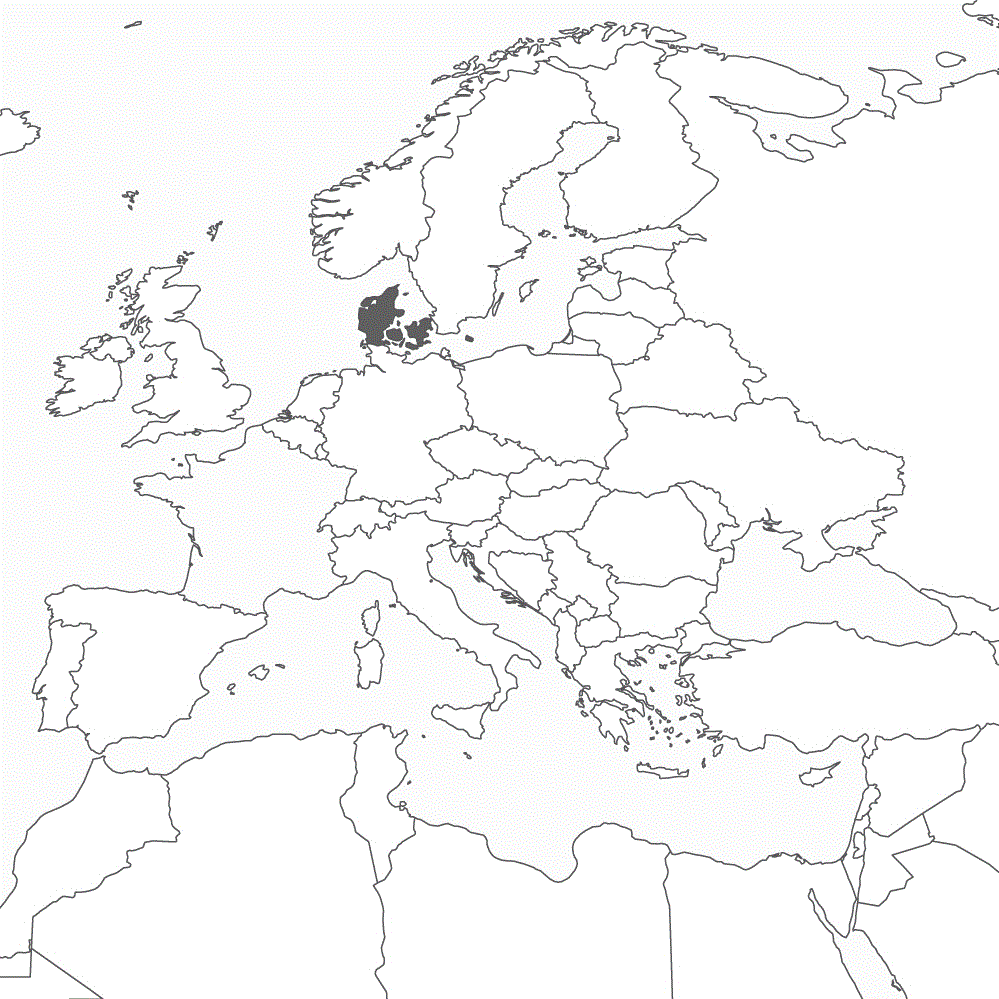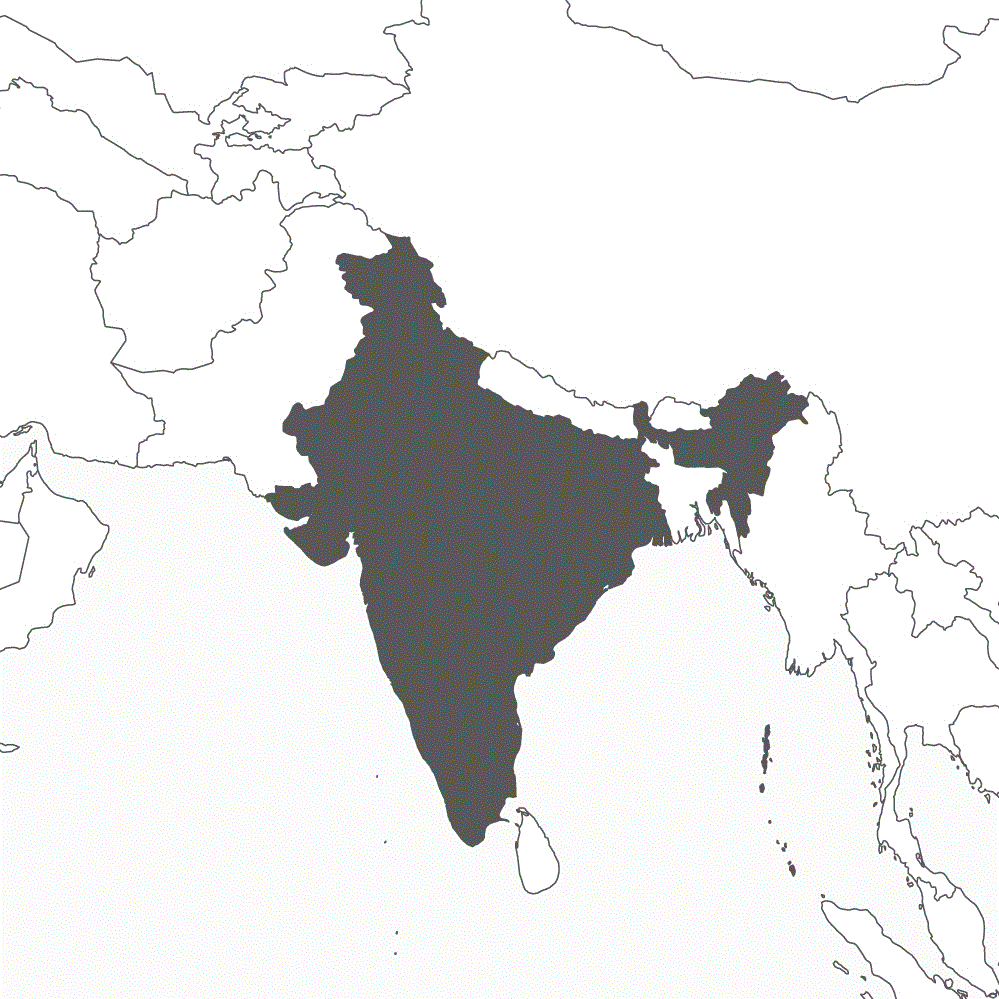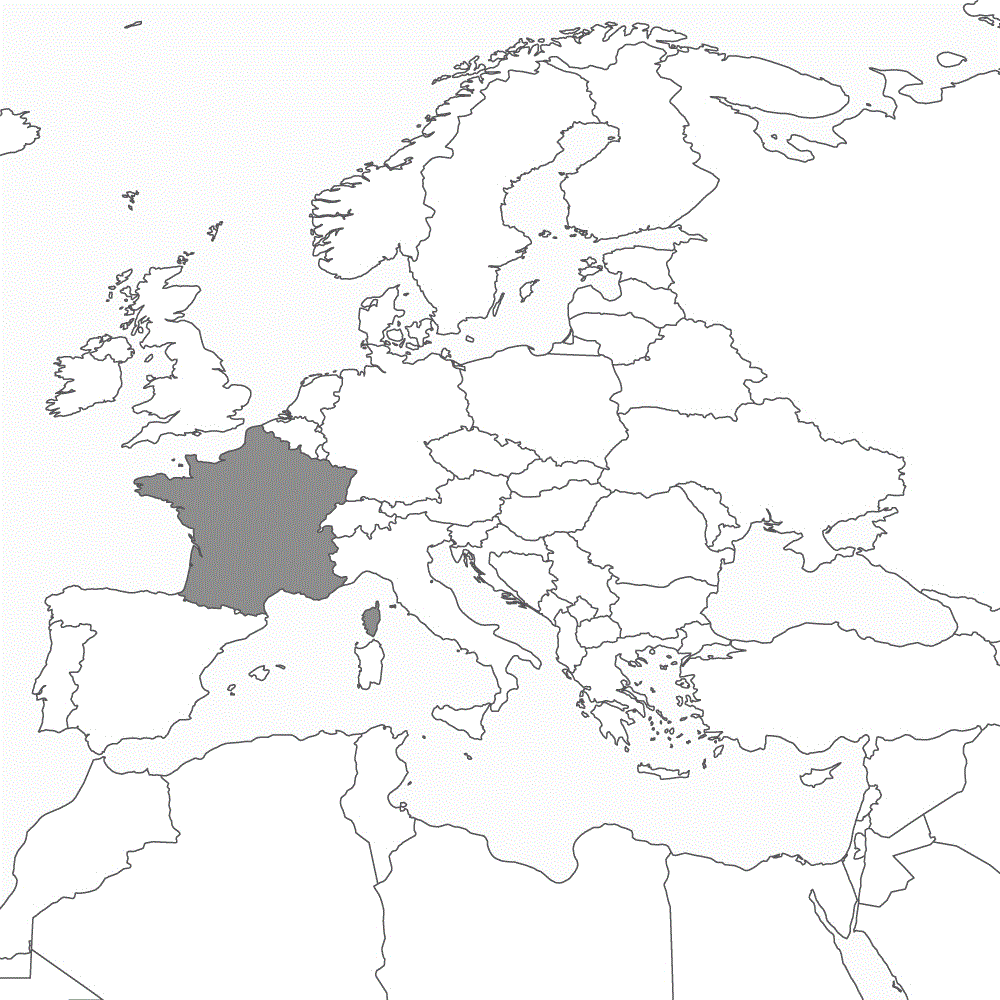The Drone Crisis (II)
Plans to create a ‘drone wall’ on NATO’s eastern flank will be discussed at the informal EU summit in Copenhagen. German start-ups have long been advocating this, but now face British competition.
BERLIN/BRUSSELS (own report) – Ahead of the informal EU summit in Copenhagen, which begins today, 1 October, plans to build a ‘drone wall’ on NATO’s eastern flank are gaining momentum. Following an announcement to this effect by EU Commission President Ursula von der Leyen in her State of the European Union address, EU Commissioner for Defence Andrius Kubilius said last Friday that interception systems would be given “immediate priority”. German defence start-ups such as Helsing and Quantum Systems have been advocating a ‘drone wall’ commitment for months. The President of the German Council on Foreign Relations (DGAP), former Airbus CEO Thomas Enders, had also called for this initiative in a strategy paper published back in March. Enders adds that the goal here must be to promote European high-tech military equipment that can be built without reliance on US technology. Start-ups like Helsing and Quantum Systems are striving to do just that. They are developing drones in close cooperation with Ukraine, where they are being tested for practical combat suitability in a real war situation. However, German high-tech arms makers are not without competition. Great Britain restated over the weekend its intention of equipping the ‘drone wall’ with its own drones. German Defence Minister Boris Pistorius is now raising objections to the project. Read more
‘Buy European’
European Commission prepares ‘Buy European’ clauses to counter export losses under US tariffs – in breach of WTO rules. Brussels also seeking free trade agreements to open alternative markets.
BRUSSELS/BERLIN (own report) – Hoping to compensate for export losses resulting from the latest US tariffs, the European Commission is now preparing ‘Buy European’ clauses for the first time. The measure would be an open breach of World Trade Organisation (WTO) rules. The step follows the tariff deal between the EU and the US under which the Trump administration imposes import tariffs of 50 per cent on steel, aluminium and a wide range of products made from these metals. The tariff affects almost nine per cent of all German exports to the US. In order to facilitate sales by European companies at least within the EU, the Commission is planning tariffs of up to 50 per cent on imports of competing goods. In addition, goods manufactured in the EU, such as green steel, are to be used exclusively or at least preferentially for government contracts. Germany’s Finance Minister Lars Klingbeil agrees with the initiative with regard to government infrastructure contracts. Last week, Chancellor Friedrich Merz reaffirmed the government’s view that Germany must reduce its economic dependence on the United States. The plan also includes new free trade agreements, which the EU is currently working hard to secure. The EU-Mercosur Agreement is facing initial protests from French farmers. Read more
Scenario: War against Russia
Bundeswehr and NATO allies engage in the Quadriga exercises, rehearsing rapid deployment to Lithuania for a war in the Baltics and Special Forces operations along the Russian border.
BERLIN (own report) – While German Luftwaffe fighters are currently in the air over the Baltic Sea to intercept Russian military aircraft, the Bundeswehr is rehearsing a possible war against Russia in the region as part of its major Quadriga exercise series. The exercises, which span several weeks, bring together soldiers from several NATO countries. These forces, under German leadership, are training in a series of interconnected individual exercises for deployment to the Baltic and for warfare. The manoeuvre officially continues until the end of September. Responsibility for planning and implementation lies with Naval Command in Rostock. The Bundeswehr’s Operational Command is leading the activities of soldiers from 14 NATO countries, although German military personnel form the majority. Individual exercises include the amassing of troops in Germany, the transfer of combat units across the Baltic Sea using civilian ferries, and the logistical and medical support for troops on NATO’s eastern flank. The Bundeswehr is also drawing on reservists, civilian infrastructure, emergency services – such as police and fire services – and a variety of other civilian actors. Read more
Marching to the right, Trump-style
Trump’s path to the extreme right produces imitators in Europe. Several governments, and Germany’s AfD, want to designate ‘Antifa’ as ‘terrorists’. Could AfD, now polling strongest, join a future coalition?
WASHINGTON/BERLIN (own report) – The dramatic political right-wing course steered by the United States under President Donald Trump is finding imitators. The initial copy-cats include two member governments and various parties across the EU. After Trump declared on Thursday that he wanted to classify antifascist groups (“Antifa”) as a “terrorist organisation”, the Dutch parliament demanded that the Netherlands does the same. And on Friday, Hungary’s Prime Minister Viktor Orbán announced his intention to join the American leader’s initiative. Identical demands are being expressed by, for instance, the president of the Belgian coalition member party Mouvement réformateur (MR) and the German far-right AfD. The AfD has now risen in two opinion polls to become Germany’s strongest party, leap-frogging the Christian Democrats (CDU/CSU). Voices within the Christian Union bloc say that if their coalition partners, the SPD, continue to obstruct the slashing of welfare provision demanded by CDU/CSU, they will consider other coalition arrangements – a reference to a coalition with the AfD. This alliance would clear the path for Berlin’s massive rearmament plans at the expense of social budgets. Meanwhile the Trump administration increasingly displays fascist inclinations. Read more
War exercises in Greenland
Several European NATO countries, including Germany, conduct war exercises in and around Greenland. Manoeuvres directed against Russia, but also indicate opposition to Trump’s annexation plans.
NUUK/COPENHAGEN/BERLIN (own report) – Conducting war exercises in and around Greenland, several European NATO countries, including Germany, are demonstrating their opposition to the United States’ demand for annexation of the Danish island. President Donald Trump has repeatedly affirmed his desire to incorporate Greenland into the US and has not ruled out the use of military force. Several American intelligence agencies have initiated initial subversive activities to identify supporters and opponents of the United States in Greenland and to stir up some initial unrest. Following a visit by French President Emmanuel Macron to Greenland’s capital Nuuk in mid-June, a German naval supply ship, ‘Berlin’ arrived there for the first time. Nils Schmid, Parliamentary State Secretary in Germany’s Ministry of Defence, also travelled there to convey the message that for Berlin, “the security of Greenland” is not just a matter of “lip service”. The exercises, led by Denmark, are intended to signal future EU support for preventing a US annexation. They are also part of a militarisation of the Danish island that is gaining momentum – a militarisation in the context of the power struggle with Russia. Read more
‘Resilience factories’
Leading German defence start-ups enter ‘strategic partnership’ to expand AI-based warfare. They seek autonomy from US components and US finance. Weapons are war-tested in Ukraine.
BERLIN (own report) – Two of Germany’s leading defence start-ups are forming a “strategic partnership” to advance AI-based warfare development. The companies both aim at the greatest possible autonomy from US players in the field. The development of an “AI-based reconnaissance and response network” will, they claim, enable armed forces to “act faster, more precisely and more efficiently in combat situations and operate at greater distances than today.” Their weaponry will deliberately be “European in design”, according to both Helsing and Arx Robotics. Helsing is the most expensive German start-up ever, valued at twelve billion euros. Arx Robotics is also seen as a rising star in the start-up scene. Unlike legacy defence companies such as Rheinmetall, which typically have close transatlantic business links, the new start-up scene hopes to establish European, and in some cases even purely German, armaments production independently of the United States. Their products are being developed in close cooperation with the defence industry in Ukraine and with the Ukrainian armed forces. The Ukrainian military are testing newly developed weapon systems in actual war conditions. This can give the German start-ups a competitive advantage by manufacturing military hardware that has been tried and tested in practice. Read more
Germany filling the gap
Germany takes advantage of the India-US rift to strengthen links with India. New Delhi also builds closer ties with Russia and China.
BERLIN/NEW DELHI (own report) – Germany is seeking to intensify relations with India and can take advantage of the current policy conflict between India and the United States. Last week, German Foreign Minister Johann Wadephul wrapped up his first visit to India since taking office last week. During talks in New Delhi plans were agreed to double the volume of trade between the two economies and to expand Germany’s recruitment of skilled workers from India. Berlin is also keen to fast-track negotiations on a free trade agreement between the EU and India. Wadephul’s visit took place at a time when relations between India and the US are in crisis due to Washington’s decision to slap high tariffs on imports from India. The Trump administration accuses New Delhi of supporting Moscow’s war in Ukraine by purchasing Russian oil. This is the reason for a doubling of the tariffs already scheduled. Refusing to give in to US pressure, the Modi government is now keen to improve relations with China. And the German government is also keen to fill the gap created by the dispute between India and the US. Germany industry is looking for alternative options as business with the US becomes less profitable. Read more
High-risk security guarantees
The West’s ‘coalition of the willing’, including Germany, agrees ‘security guarantees’ for Ukraine, including troop deployments expressly against Russia’s will – risking yet more war.
PARIS/BERLIN/KIEV (own report) – A “coalition of the willing” consisting mainly of European states, including Germany, has agreed on “security guarantees” for Ukraine, including the non-covert deployment of NATO troops on Ukrainian territory. This was announced yesterday, Thursday, by French President Emmanuel Macron after a meeting in Paris with the participation of twenty-six countries. However, not all of them are keen to send troops. In mid-August, German Chancellor Friedrich Merz was still giving the impression that he would commit Bundeswehr forces, but he has recently struck a more cautious note. Indeed, Wolfgang Ischinger, former head of the Munich Security Conference, has called the discussion about an official Western military presence in Ukraine an “unnecessary ghost debate”. It would only make sense if Russia agreed to the plan, Ischinger argued. And Moscow has confirmed that this is certainly not the case. Russia says it will continue the war if a negotiated solution cannot be reached. Pushing in the opposite direction, NATO Secretary General Mark Rutte says the West shouldn’t care about “what Russia thinks about troops in Ukraine”. Yet NATO deliberately ignored Moscow’s red lines at the end of 2021 and the consequences are well known. Read more
Decision postponed again
Once again, no decision has been made on the future of the sixth-generation FCAS fighter jet at the Franco-German Council of Ministers. The future of the 100 billion euro joint project remains in doubt.
PARIS/BERLIN (own report) – The 25th Franco-German Ministerial Council, which met in Toulon, France, on Friday, failed to make any progress on the most important Franco-German joint armaments project. It was announced before the meeting that there would now be no decision until the end of the year on the future of the Future Combat Air System (FCAS), a so-called sixth-generation fighter jet. Ever since the project was launched in 2017, Germany and France have been arguing over their “workshares” in the project, which is estimated to total 100 billion euros. However, the ministerial meeting in Toulon did produce a number of other announcements, including an agreement on energy sector cooperation and another on the scheduling of “strategic dialogues” on a joint EU nuclear deterrent. The latter, however, would depend on having an independent European fighter jet, such as the FCAS. Several European countries have now expressed an interest in joining the FCAS programme or even made concrete proposals. Belgium has pledged 300 million euros, while Spain, Switzerland and Portugal are weighing the advantages of abandoning the purchase of the US F-35 fighter jet. Read more
Where such madness leads
Rheinmetall opens Germany’s biggest ammunition factory, aiming to catch up with the world’s leading arms makers. Berlin is set to slash welfare to finance militarisation. Demonstrators face growing repression.
DÜSSELDORF/BERLIN (own report) – Rheinmetall has just opened Germany’s largest ammunition factory. The company can expect arms contracts worth hundreds of billions and aims to catch up with the world’s largest arms manufacturers. The new weapons factory in Unterlüß was opened today, Wednesday, in the presence of German Defence Minister Boris Pistorius, Finance Minister Lars Klingbeil and NATO Secretary General Mark Rutte. Moving forward, Rheinmetall plans to scale output to 350,000 artillery shells a year. As business continues to boom, Rheinmetall CEO Armin Papperger sees his company acquiring arms contracts worth up to 300 billion euros by 2030. Papperger eyes group sales of up to 50 billion euros by 2030. This is a level currently achieved only by the world’s two largest arms manufacturers, Lockheed Martin and RTX (both based in the US). While the German government is considering fierce welfare cuts to finance its arms build-up, repression against opponents of war has been stepped up. An ‘anti-war camp’, specifically with the slogan “Disarm Rheinmetall!”, has opened in Cologne. The authorities sought to ban the initiative for calling for a “War on War” – a motto that derives from a Kurt Tucholsky poem published in 1919. Read more
GERMAN-FOREIGN-POLICY.com
Information on German Foreign Policy: News + Interviews + Analyses + Background






